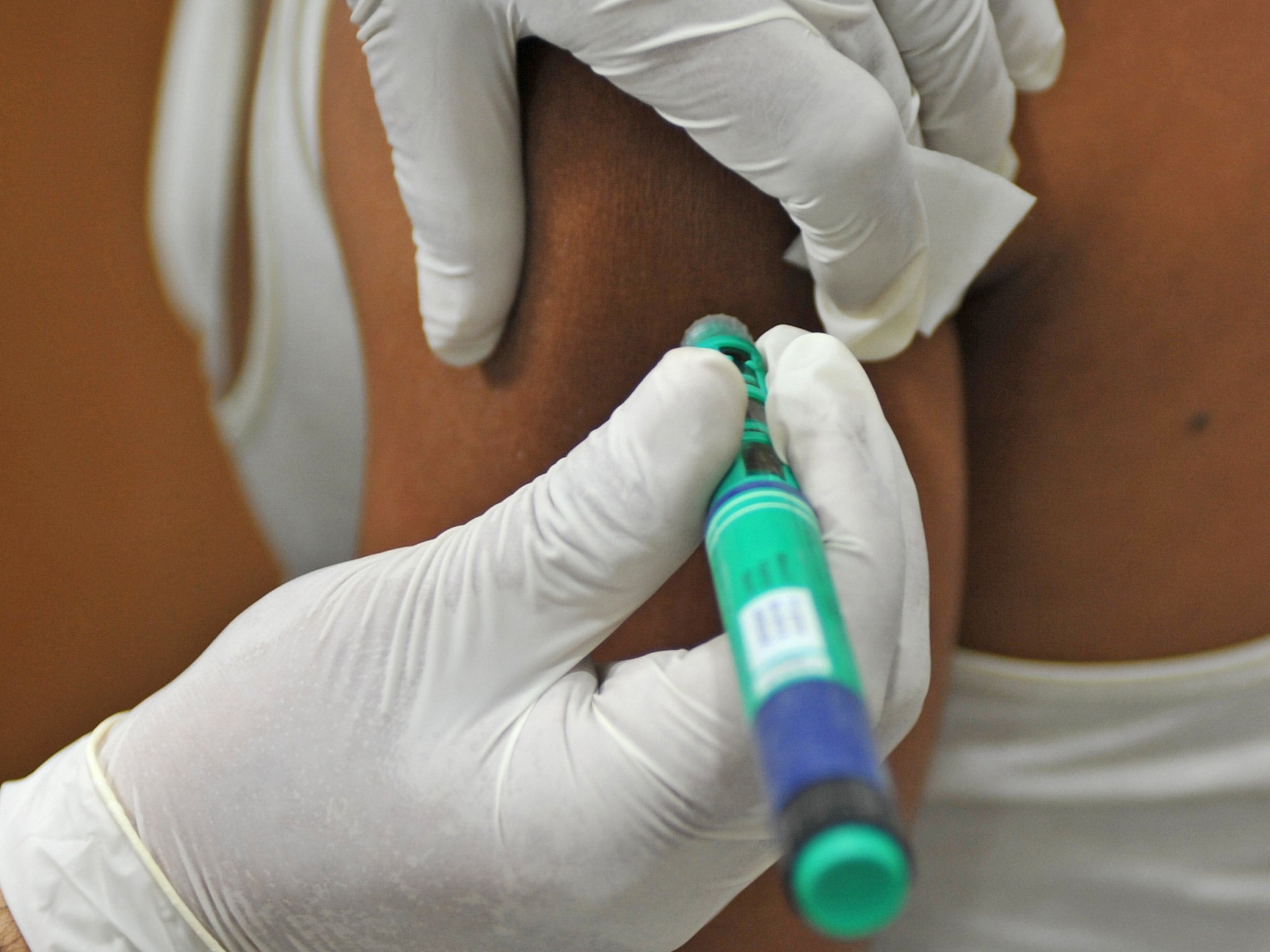New treatment could free type-1 diabetics from 'daily grind' of insulin injections
Researchers hail findings as a possible 'game-changer' and 'a new way forward' for patients

Your support helps us to tell the story
From reproductive rights to climate change to Big Tech, The Independent is on the ground when the story is developing. Whether it's investigating the financials of Elon Musk's pro-Trump PAC or producing our latest documentary, 'The A Word', which shines a light on the American women fighting for reproductive rights, we know how important it is to parse out the facts from the messaging.
At such a critical moment in US history, we need reporters on the ground. Your donation allows us to keep sending journalists to speak to both sides of the story.
The Independent is trusted by Americans across the entire political spectrum. And unlike many other quality news outlets, we choose not to lock Americans out of our reporting and analysis with paywalls. We believe quality journalism should be available to everyone, paid for by those who can afford it.
Your support makes all the difference.Hundreds of thousands of diabetics could potentially be freed from the “daily grind” of insulin injections after research suggested a new treatment was safe.
Scientists at the University of California, San Francisco, developed a way of restoring the ability of people with type-1 diabetes to produce insulin for a year or more using their own immune cells, The Times newspaper reported.
A type-1 diabetic’s immune system attacks the pancreas but the researchers cultivated billions of T-regulatory immune cells, known as Tregs, that do not have this trait and gave them to the patients.
Professor Jeffrey Bluestone, one of the scientists involved in the work, said their findings could be a “game-changer”.
“For type-1 diabetes, we’ve traditionally given immunosuppressive drugs, but this trial gives us a new way forward,” he said.
“By using Tregs to re-educate the immune system, we may be able to change the course of this disease.”
In the first clinical trial of the technique, 14 people were treated without any serious side-effects, the researchers reported in the journal, Science Translation Medicine. They now plan a larger trial.
The method involves taking a pint of blood from the patient, removing up to 4 million Tregs and then increasing that number by 1,500 times in a test tube.
They are then returned to the patient and do not attack the pancreas. Up to 25 per cent were found to be still there after 12 months.
The procedure could potentially be used to treat other conditions such as rheumatoid arthritis, cardiovascular disease and even obesity.
“Using a patient’s own cells - identifying them, isolating them, expanding them, and infusing them back - is an exciting new pillar for drug development,” Professor Bluestone said.
One of the patients in the trial, Mary Rooney, 39, said: “The work of Dr Bluestone and his team offers new hope for people with type-1 diabetes.
“The Treg intervention aims to prevent the development and progression of type-1 diabetes, freeing people like me from the daily grind of insulin therapy and lifelong fear of complications.”
Join our commenting forum
Join thought-provoking conversations, follow other Independent readers and see their replies
Comments